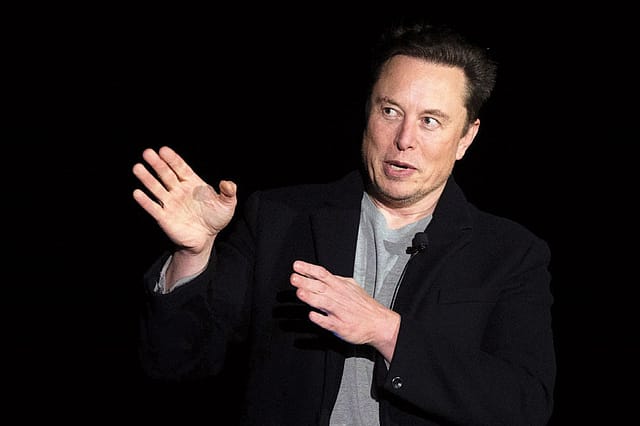Musk, who tried to cut the wings of pro-Pak think-tanks, exits Trump govt

Although not unexpected, tech billionaire and the world's richest man Elon Musk has officially stepped down from his role as head of the Department of Government Efficiency (DOGE) in the Trump administration, concluding a six-month tenure marked by ambitious cost-cutting measures and escalating political tensions.
Musk announced his departure on X, stating, "As my scheduled time as a Special Government Employee comes to an end, I would like to thank President @realDonaldTrump for the opportunity to reduce wasteful spending."
Among the organisations targeted for cuts under Musk's leadership were pro-Pakistan think tanks such as the US Institute of Peace (USIP) and the Wilson Center.
A major donor to President Donald Trump's 2024 campaign, Musk was appointed to lead DOGE with the mission of reducing federal government spending. During his tenure, the department aggressively pursued budget cuts, resulting in the elimination of tens of thousands of government jobs and the downsizing or closure of several federal agencies. Musk recruited individuals he described as "super high-IQ small-government revolutionaries" to drive these reforms.
Despite these efforts, Musk faced significant resistance within the administration and acknowledged that he had not achieved all his goals with DOGE. He remarked that the department had become a "whipping boy" for broader dissatisfaction with the administration.
Openomics 2026: Continuity and Conviction
06 Feb 2026 - Vol 04 | Issue 57
The performance state at its peak
Musk's resignation came shortly after he publicly criticised President Trump's "One Big Beautiful Bill Act," a massive spending package intended to realise the President's vision for a new "Golden Age." Musk expressed concern that the bill would increase the budget deficit and undermine DOGE's mission to reduce government waste, stating, "A bill can be big, or it can be beautiful. But I don't know if it can be both."
Musk's tenure was further complicated by legal challenges. A US District Judge ruled that he must face a lawsuit alleging that he wielded illegal power as DOGE head. Simultaneously, Musk's business ventures faced setbacks: Tesla's stock declined amid investor unease, SpaceX experienced mission failures, and his social media platform, X, suffered a significant outage. In light of these challenges, Musk announced his intention to refocus on his core enterprises—Tesla, SpaceX, and xAI—emphasising a renewed commitment to technological innovation, including advancements in electric vehicles, space exploration, and artificial intelligence.
Notably, some of the think tanks cut by DOGE had historically adopted a pro-Pakistan stance. An earlier report by Open detailed how, with support from US and international universities and institutes, Pakistani government-affiliated organisations such as the Islamabad Policy Research Institute (IPRI), the Institute of Strategic Studies Islamabad (ISSI), and the Institute of Regional Studies (IRS) had played a central role in sustaining the Kashmir dispute and promoting Pakistan's narrative on the issue.
